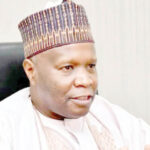On June 22, 2024, at a sporting event organised for civil servants as part of activities to mark the 2024 Civil Service Week, the Head of the Civil Service of the Federation (HCSF), Dr Folasade Yemi-Esan, made a fundamental claim about the status of the Nigerian Civil Service. At that event, the HCSF said that Nigeria had the best civil service in the world. That was a most fundamental statement coming from such a significant personality in the civil service hierarchy. That statement has sufficient weight and implications as to defy the gravity of silence. But there is no doubt that such a statement would generate some forms of reactions from Nigerians. As Simon Kolawole has exemplified, there are those who take the statement with deep umbrage given that it does not represent their perceived perception of the efficiency level and the image that the civil service has earned for itself within the context of Nigeria’s democratic governance.
My first instinct on reading the submission of the HCSF is to imagine that a similar statement had been made in a conference of public administration experts, scholars and professionals. One methodological approach of a response to this statement – suggested by my research and comparative inclinations – would be to situate the HCSF’s confidence within the historical trajectory of the civil service in Nigeria. There are two significant administrative moments in the evolution of the civil service history in Nigeria that foretell its immense possibilities. The first is the immense administrative achievements of the old western region civil service, one regional administrative success story that I had studied and published on. Within the context of the Awolowo-Adebo governance collaborative paradigm therefore, the civil service in Nigeria in the ‘60s became renowned as one of the best in the Commonwealth community of practice. The second was the critical and outstanding performance of General Yakubu Gowon’s super-permanent secretaries before, during and after the Nigerian Civil War. But then, despite having the credentials to lay claims to being one of the best civil service systems at those moments, such a statement was never made. The nuance in the story is to know why.
To say a civil service system is the best in the world demands that certain administrative minimum and maximum be already in place. Indeed, such a statement would have already found the country backstopped by a civil service system on top of many human development indices and ISO certification to boot. A follow up question is, what would such a civil service system like Nigeria’s do to live out the dream of being the best in the world? This question is highlighted by the governance performance of the Asian Tigers, a performance that is founded on their developmental value orientation and capable state model.
Going forward, the crucial issue is to decisively deal with the bureaucratic culture that is already consolidating the failure of the civil service system to become efficient. However, these bureaucracies that are supposed to complement democracy have become hindered by three structural matters. The first is that they have become so dedicated to their internal processes and mechanisms that they have become closed systems – self-protecting and anti-intellectual. They are therefore incapable of taking full advantage of the seminal culture of cross-fertilisation of ideas that enables the flow of ideas from the local and global knowledge and information networks, and hence too rigid to be significantly innovative. The heavy reliance on administrative precedence and models that worked very well in the past implies that the civil service system becomes backward-looking and resistant to reform and change.
- Wase Emirate tussle: Abdullahi Idris confirmed as Rekna of Bashar
- Tinubu, Abbas, others mourn as Oyo Rep, Akinremi, dies at 51
The second structural matter that hinders the Nigerian Civil Service system is the fact that it operates within the constraints created by Nigeria’s political culture that politicises everything. The fundamental problem, therefore, becomes that rather than aiding the successes of institutional reforms for high-performance of the system, the reformer has to keep overcompensating for distortionary politics. The third structural issue has to do with the ways past reforms of the system have been carried out. The passion the reforms generated have not been founded on adequate knowledge, and so this keeps causing a huge gap between the conception of the reform initiatives and the reality of dysfunction. For instance, there has always been a heavy reliance on external expertise in ways that are devoid of internal validation and buy-in.
Indeed, any contender for the space of the best civil service systems in the world must demonstrate verifiable evidence that plays out in terms of policy intelligence, administrative efficiency, service delivery standards, and the productivity paradigm it facilitates. And this can be done when the entry requirement into the profession is adequately monitored, capacitated and incentivised in ways that allow the civil service in Nigeria draws the best graduates the Nigerian tertiary education system can offer.
The point therefore is that when the HCSF made the statement that the Nigerian civil service system is the best in the world, it was a critical statement that loads the dice in favour of the intelligent, smart, committed and patriotic Nigerian civil servants who are in the minority, but who have the capacity to make the system the best Nigeria needs to become capable in terms of democratic governance. Professor Olaopa is the Chairman, Federal Civil Service Commission, Abuja.
 Join Daily Trust WhatsApp Community For Quick Access To News and Happenings Around You.
Join Daily Trust WhatsApp Community For Quick Access To News and Happenings Around You.


